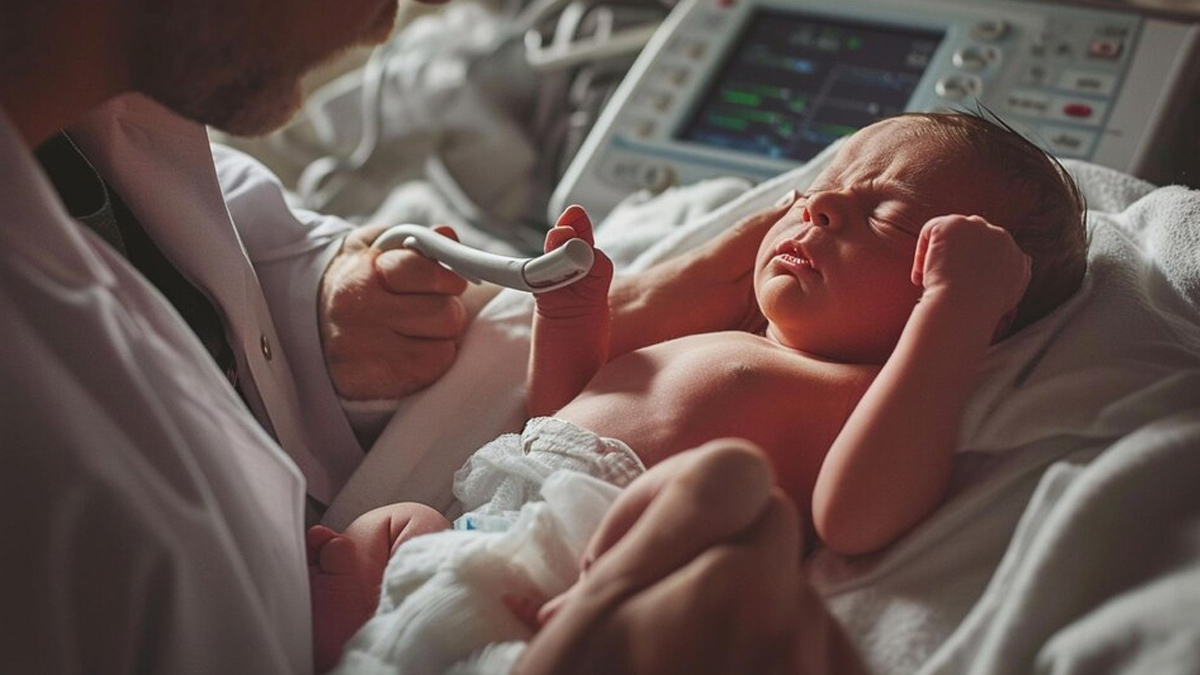
Have you heard about 'newborn screening', a series of tests performed on newborns to identify potentially serious but treatable conditions? These conditions are often undetectable at birth but can cause significant health problems if left untreated. Timely treatment of identified conditions through newborn screening can significantly improve the child's prognosis and prevent severe health problems. We spoke to our expert Dr Shreya Dubey, Consultant - Neonatology and Paediatrics, CK Birla Hospital, Gurgaon, who explained this screening and important tests in screening programs.
Table of Content:-
What Is Newborn Screening?

“A public health initiative known as 'newborn screening' aims to detect specific genetic, metabolic, and developmental abnormalities in infants soon after birth. Early detection of these disorders enables prompt diagnosis and therapy aimed at preventing or minimising long-term health issues and developmental disabilities,” said Dr Dubey.
In numerous instances, the follow-up test yields normal results, indicating no underlying issues. However, if the second test suggests the presence of a health condition, your child's medical team will provide detailed explanations of the results and outline the necessary steps to safeguard their health.
According to a 2017 study, newborn screening, often referred to as 'baby's first test,' involves a simple procedure typically performed when infants are around two days old. A small puncture is made on the baby's heel, and a few drops of blood are collected on a filter paper card, either through voluntary or mandatory programs. These cards are then sent to a screening lab where they undergo testing for various disorders, including endocrine disorders, haemoglobin disorders, cystic fibrosis, and Inherited Metabolic Disorders (IMDs).
Also Read: Baby Skincare: Expert Lists Ingredients To Be Avoided In Baby Care Products
Key Tests in Newborn Screening Programs

Newborn screening programs usually include the following important tests, as listed by Dr Dubey:
Blood tests
“Soon after birth, a newborn's heel is used to draw blood samples, which are then examined to look for various metabolic and genetic abnormalities. Typical blood tests include the following: sickle cell disease, hypothyroidism, and Phenylketonuria (PKU),” added Dr Dubey.
Hearing Screening
Non-invasive tests like Auditory Brainstem Response (ABR) and Otoacoustic Emissions (OAE) are used to screen newborns for hearing loss. Early intervention is essential for language and cognitive development and is made possible by the early discovery of hearing loss.
Screening for Critical Congenital Heart Disease (CCHD)
This screening uses a pulse oximeter to measure the oxygen saturation levels in a newborn's blood. Low oxygen levels can be a sign of a congenital cardiac abnormality that needs further investigation and treatment.
Metabolic diseases Screening
Depending on the particular screening program implemented in each region, newborn screening may also involve screening for various metabolic diseases in addition to the blood tests already mentioned. These conditions could include maple syrup urine disease, biotinidase deficiency, and others.
According to a 2024 study, newborn screening has significantly broadened to encompass over 60 disorders in the present screening panels. It's important to understand that this screening serves as an initial screening tool, and individuals should not be diagnosed with a disorder until confirmatory diagnostic testing is conducted. However, upon confirmation of a disorder, prompt initiation of treatment is crucial to prevent its clinical manifestation and associated complications.
The majority of newborns are born in good health, and their screening tests usually do not reveal any abnormal health conditions. If your baby's test results indicate values outside the normal range, it does not necessarily imply the presence of a health condition. The subsequent step involves conducting a second, more precise diagnostic test to confirm any potential concerns.
Bottomline
Dr Dubey concluded, “Through newborn screening, these diseases can be identified early and treated to avoid major health issues, developmental delays, and in rare circumstances, even death. Parents must recognise the value of newborn screening and make sure their child gets the testing that medical professionals advise.”
[Disclaimer: This article contains information provided by an expert and is for informational purposes only. Hence, we advise you to consult your expert if you are dealing with any health issues to get the necessary treatment.]
Also watch this video
How we keep this article up to date:
We work with experts and keep a close eye on the latest in health and wellness. Whenever there is a new research or helpful information, we update our articles with accurate and useful advice.
Current Version
